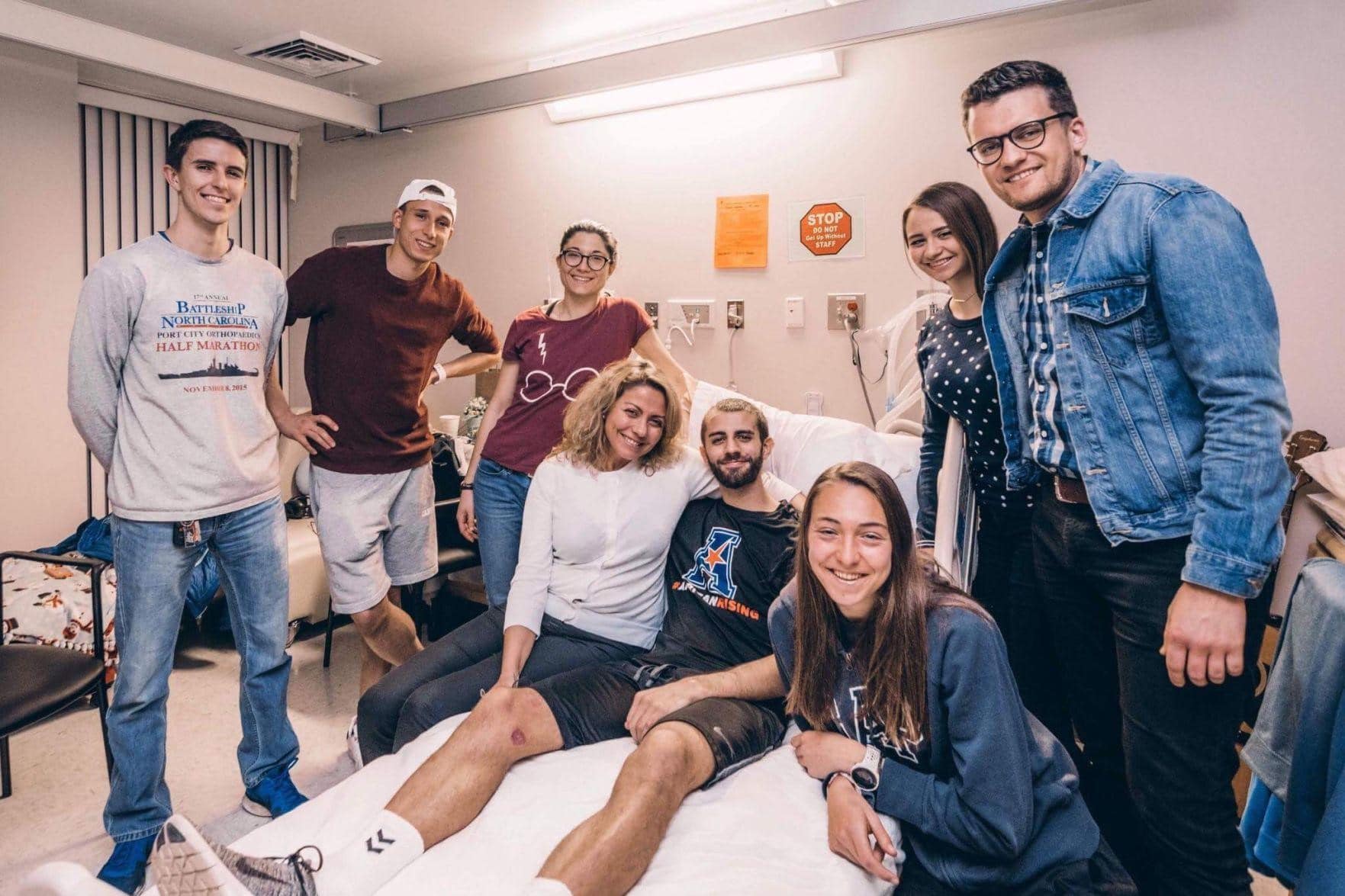In February of 2018, Pol Solanelles had his life’s plan in place.
The Barcelona native had recently completed his last year of eligibility competing in track & field and cross country as an East Carolina University student-athlete. Now on his to-do list: finish the last semester of his Master of Business Administration degree, get into a doctorate program and land a job at a university in the United States.
He’d made a home for himself over four years in Greenville and everything was on time and on track. Until his accident.
While riding his bike home from ECU’s campus on Feb. 12, 2018 and just a hundred or so yards from his residence, Solanelles fell off of his bike and was run over by a car. He suffered a traumatic brain injury, broke many bones and had many hurdles in front of him as he was rushed to Vidant Medical Center (VMC).

He had surgery that same night and was placed in an induced coma for nearly a month while his body recovered from the crash. When he woke up and his recovery process began, Solanelles said he never questioned his plan moving forward.
“The accident happened and the only thing I could think of was, everything is going to be delayed,” Solanelles said. “I wasn’t thinking, ‘I’m not going to be able to do that.’ I was just upset because everything was going to be delayed.”
He described the beginning of his recovery as starting from scratch.
For his brain injury, it started with simple memory and speech exercises. In the early days after coming out of his coma, he was still confined to his bed but started to stand up and walk as his rehabilitation progressed.
He said that as a former athlete he felt confident in getting his body back on track over time. So, during his recovery, he focused heavily on his mental exercises and keeping his brain sharp.
“I was pretty obsessed with getting back to normal,” Solanelles said. “With my body, it was like, ‘OK, I really don’t care that much but my brain, I’m going to have to rely on it for the rest of my life.’ I focused a lot on my head with the exercises that we were doing.”
His time at VMC and with the rehabilitation team was instrumental to his recovery, he said. It was a rigorous program and one that let him re-learn quickly.
“Vidant had a very proactive approach of trying to deal with as many things as possible on a short time window, because that’s when the brain is more susceptible to any learning process,” Solanelles said. “Kind of like when we are kids, it’s easier to learn things. I was doing maybe six hours of rehab every day. It was like my whole day and I would finish exhausted.”
Solanelles said those long, challenging days of rehabilitation were made easier a few different ways. He felt his time as a student-athlete helped him recover more quickly between rehabilitation days. He was also highly motivated to get back on track with his studies and to complete his degree program.
Perhaps most importantly, though, was his positive attitude and the support of the rehabilitation team at VMC.
“It was very important to have an optimistic outlook from the beginning,” Solanelles said. “The staff in the rehab department, they were very helpful in keeping me in a good mood. I would have fun most of the time doing the exercises or just chatting with them. That helped to stay motivated and, again I think I got back to normal.”
Missy Moore, a physical therapist at VMC, said her job is constantly motivating as she sees patients through their recovery process.
“The best part about working in rehab is the connection you get to make with the patients and their families,” Moore said. “You get to spend time with them and work with them every day, and they become part of your rehab family. You experience their highs and lows with them. Whatever injury someone has suffered is just a speed bump in their story. Watching them move over the hump and keep on driving is why I love what I do.”
Speech-Language Pathologist at Vidant Medical Center Amanda Rice said the compassion for each patient’s journey is vitally important in rehabilitation.
“It’s important to remember that as therapists what we encounter may be part of our every day and what we do,” Rice said, “but that is not true for our patients. Understanding the patient’s experience and how we can best support them in their journey and recovery is important. I feel fortunate to be a part of that journey.”
After four months at VMC, Pol returned to Barcelona and spent two additional months in a hospital in his home city and completed his rehab. As things slowly started to return to normal, his academic and career goals came back into view. He started with some online courses to work back toward his MBA and returned to Greenville to complete his program in the spring of 2019.
Now, things are back on time and on track for Solanelles. He started his doctoral program in business management at the University of Mississippi in August of 2019 and is currently halfway through the program.
March is Traumatic Brain Injury Awareness Month and Solanelles said through all of his rehabilitation and experience with friends, family and support groups that talking about his experience has been a source of comfort for him.
“Talking about it helps a lot. I’ve always been able to talk about it as if ‘Oh, I went to do groceries.’ That has helped me deal with it with humor,” Solanelles said. “People get surprised about that. I think talking about it helps both yourself and your family. That was healing.”
Resources:
Trauma Survivors Network at Vidant Medical Center